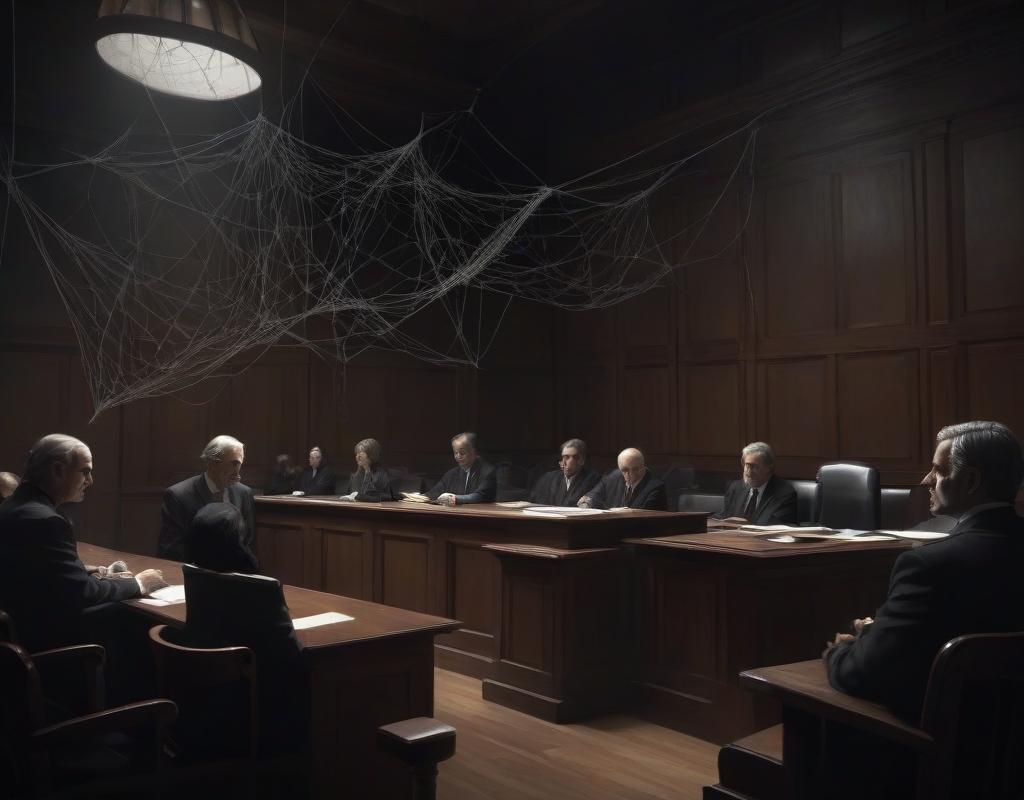The story of Luigi Mangione serves as a critical lens through which we can view the delicate interplay between the criminal justice system and mental health interventions, especially in high-stakes legal circumstances. With the gravity of his charges and the heightened media attention due to the nature of his alleged crimes, Mangione’s case offers invaluable insights into the potential and limitations of current practices in handling similar complex cases.
### The Complex Web of Mangione’s Charges
Mangione has been thrust into the spotlight after being implicated in the death of a high-profile CEO. His relocation to SCI Huntingdon has placed him in one of Pennsylvania’s most secure facilities, proven necessary given the seriousness and complexity of his alleged crimes. This institution is tasked not only with containing Mangione but also managing his exposure both to other inmates and external influences which could compromise his safety or mental health.
### Mental Health Evaluation in Correctional Settings
Upon his entrance to SCI Huntingdon, Mangione was subject to a thorough mental health screening, a standard procedure meant to gauge the immediate psychological needs and risks posed by new detainees. The choice to forgo a suicide watch suggests that, initially, he was not deemed a risk to himself. This decision, however, highlights the broader challenges faced in adequately assessing and addressing the mental health needs of inmates, particularly those under high-profile scrutiny. Experts argue that such initial screenings, while necessary, are insufficient on their own and must be complemented by ongoing assessments.
### The Intricacies of Legal Proceedings
Mangione faces a spectrum of charges that span multiple jurisdictions, complicating his legal situation. Among these are forgery and illegal firearm possession, but most significantly, he is charged with second-degree murder in New York. The debate surrounding his extradition underscores the complexity of legal proceedings in such multi-jurisdictional cases, where procedural nuances can profoundly affect both the strategy and outcome of the case.
### Solitary Confinement and Its Implications
While solitary confinement might protect Mangione from potential threats, this form of isolation raises substantial concerns about its impact on mental health. Studies and firsthand accounts from other inmates suggest that prolonged solitary confinement can lead to severe psychological distress. Nonetheless, correctional officials maintain that his confinement conditions are continually reassessed, indicating a willingness to modify his treatment based on evolving needs and circumstances.
### Expert Insight and National Trends
The national dialogue on mental health in prisons is enriched and complicated by cases like Mangione’s. Dr. Emily Strauss, among other experts, emphasizes the importance of tailoring mental health evaluations and interventions to fit individual cases, particularly when the inmates are involved in high-profile cases. The dynamic nature of these assessments reflects an emerging trend in criminal justice to integrate more responsive and humane mental health care practices in the prison system.
Moreover, national statistics indicate a significant prevalence of mental health issues among incarcerated populations, further underlining the need for comprehensive reform in prison mental health care. These statistics suggest a systemic issue that extends beyond individual cases like Mangione’s, pointing to a widespread need for enhanced mental health services and support systems within prisons.
### Looking Forward: Continuous Assessment and Care
As Mangione continues to navigate the complexities of his legal battle and incarceration, the ongoing assessment of his mental and physical well-being remains a priority. The Pennsylvania Department of Corrections, alongside mental health professionals, plays a vital role in ensuring that Mangione’s treatment and confinement conditions are aptly suited to any changing aspects of his health or legal circumstances.
### Reflections on Systemic Challenges and Reforms
The intricate details of Luigi Mangione’s situation at SCI Huntingdon embody larger systemic issues at the intersection of mental health and the criminal justice system. His case acts as a catalyst for broader discussions and potential reforms aimed at improving how such cases are managed. It highlights the need for a proactive and integrated approach to mental health in corrections, one that supports the rights and well-being of inmates while ensuring public safety and adherence to judicial processes.
In the broader context, Mangione’s ongoing legal and mental health challenges underscore the urgent need for systemic reforms. These should aim to foster a more humane, just, and efficacious intersection between mental health support and criminal justice, ensuring that individuals like Mangione receive fair treatment and comprehensive care tailored to their specific circumstances. As this case unfolds, it will likely continue to be a touchstone for discussions about how best to balance these critical concerns within the framework of the American legal system.




